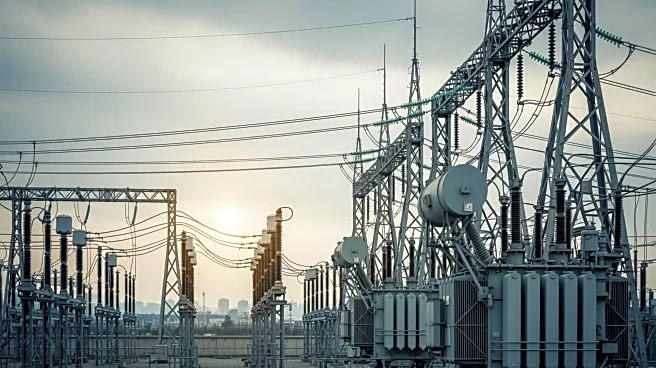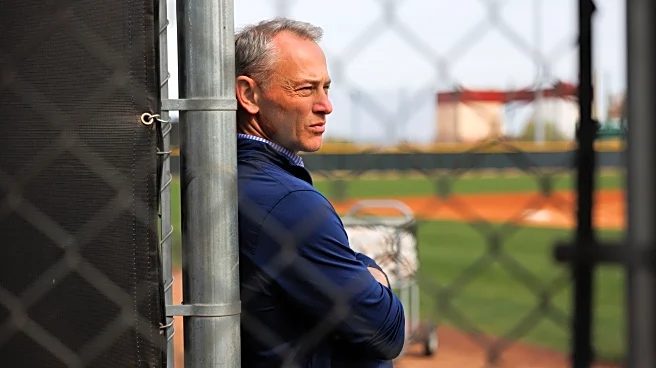What's Happening?
The European Union's executive arm has unveiled proposals aimed at protecting farmers from potential negative impacts of the Mercosur trade deal. The agreement between the EU and Mercosur countries—Brazil, Argentina, Uruguay, Paraguay, and Bolivia—seeks to eliminate duties on nearly all goods traded between the two blocs over the next 15 years, creating one of the world's largest free trade zones. However, the deal has faced opposition from Europe's agriculture sector, which fears being undercut by cheaper imports from South America. The EU's new proposals include mechanisms for farmers to lodge complaints and trigger investigations into trade imbalances. If import prices from Mercosur are significantly lower than EU prices, preferential tariffs could be temporarily withdrawn. Special provisions are also included for sensitive sectors such as beef, eggs, and ethanol.
Why It's Important?
The Mercosur trade deal represents a significant shift in global trade dynamics, potentially affecting the EU's agricultural sector, which is a major component of its economy and culture. The deal promises substantial economic benefits, including saving businesses billions in duties annually. However, it also poses risks to local farmers who may face increased competition from cheaper imports, potentially leading to economic and social unrest. The EU's protective measures are crucial to balancing these interests, ensuring that the agricultural sector remains viable while pursuing broader economic gains. The outcome of this deal could influence future trade negotiations and set precedents for how agricultural concerns are addressed in international agreements.
What's Next?
The EU-Mercosur deal, agreed upon after nearly 25 years of negotiations, still requires ratification by the EU's 27 member states and the European Parliament. As the ratification process unfolds, stakeholders, including farmers and political leaders, will likely continue to debate the merits and drawbacks of the agreement. The EU's protective measures may be tested if import surges occur, prompting investigations and potential tariff adjustments. The ongoing discussions and decisions will shape the future of EU trade policy and its approach to balancing economic growth with sector-specific protections.
Beyond the Headlines
The Mercosur trade deal highlights broader issues of globalization and its impact on local industries. The tension between economic liberalization and protectionism is a recurring theme in trade negotiations, reflecting the challenges of integrating diverse economies with varying levels of development. The deal also raises environmental concerns, as increased trade could lead to greater resource exploitation and ecological damage. These factors underscore the complexity of modern trade agreements, which must navigate economic, social, and environmental dimensions to achieve sustainable outcomes.









